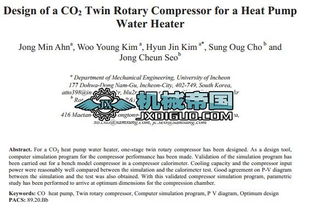Does Sand or Water Heat Up Faster?
When it comes to the question of whether sand or water heats up faster, the answer is not straightforward and depends on various factors. In this article, we will explore the reasons behind this phenomenon and delve into the scientific principles that govern heat transfer in both substances.
Thermal Conductivity

Thermal conductivity is a measure of how well a material can conduct heat. It is an important factor in determining how quickly a substance can heat up. Water has a higher thermal conductivity than sand, which means it can transfer heat more efficiently. However, this does not necessarily mean that water heats up faster than sand.
| Material | Thermal Conductivity (W/m路K) |
|---|---|
| Water | 0.6 |
| Sand | 0.2 |
As you can see from the table above, water has a higher thermal conductivity than sand. This means that water can transfer heat more quickly than sand. However, this does not necessarily mean that water heats up faster than sand. Other factors, such as specific heat capacity, play a significant role in determining how quickly a substance heats up.
Specific Heat Capacity

Specific heat capacity is the amount of heat required to raise the temperature of a substance by one degree Celsius. Water has a higher specific heat capacity than sand, which means it can absorb more heat without a significant increase in temperature. This property makes water a better heat reservoir compared to sand.
| Material | Specific Heat Capacity (J/g路掳C) |
|---|---|
| Water | 4.18 |
| Sand | 0.8 |
As you can see from the table above, water has a higher specific heat capacity than sand. This means that water can absorb more heat without a significant increase in temperature. Therefore, when exposed to the same amount of heat, water will heat up slower than sand.
Heat Transfer Mechanisms

Heat transfer in both sand and water occurs through three primary mechanisms: conduction, convection, and radiation. Conduction is the transfer of heat through direct contact between particles. Convection is the transfer of heat through the movement of a fluid. Radiation is the transfer of heat through electromagnetic waves.
In the case of sand, heat transfer primarily occurs through conduction. The particles in sand are tightly packed, allowing heat to be transferred from one particle to another. However, the slow movement of sand particles limits the rate of heat transfer. In contrast, water can transfer heat through both conduction and convection. The movement of water molecules allows for efficient heat transfer, making water a better conductor of heat compared to sand.
Conclusion
In conclusion, while water has a higher thermal conductivity and specific heat capacity than sand, it does not necessarily heat up faster. The rate at which a substance heats up depends on various factors, including the heat transfer mechanisms and the specific conditions of the environment. Therefore, it is essential to consider these factors when determining which substance heats up faster.
